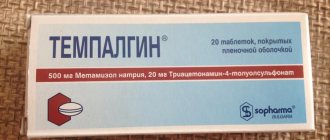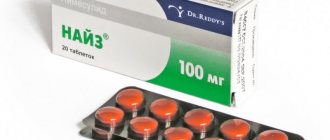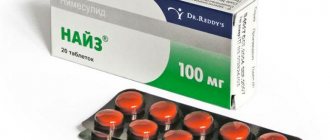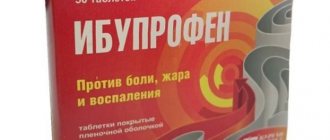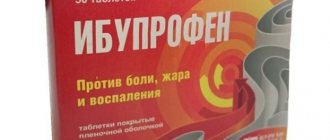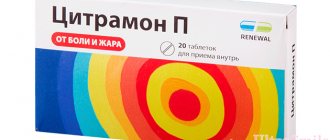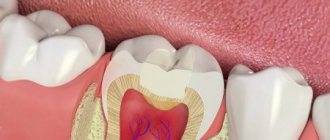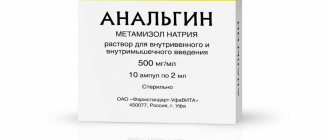More than once at an appointment I came across a situation where a patient without any obvious cardiovascular pathology prescribed cardiomagnyl (or thromboASS, cardio aspirin, etc.), being sure that absolutely everyone at his age (that is, “after 45 -50 years"), this is exactly the kind of prevention of cardiovascular diseases that is needed. After all, the neighbor also drinks, they say on TV that it’s necessary, and so on...
Is it really necessary?
The fact is that modern recommendations for the treatment of cardiovascular diseases (CVD) speak of the need for lifelong use of aspirin by those people who have already suffered any cardiovascular events. These include heart attack, stroke, transient ischemic attacks. As for the use of aspirin by people who do not have a history of any cardiovascular diseases, including those listed above, today the routine administration of aspirin (or other antithrombotic drugs) to such patients is not recommended due to the lack of evidence supporting First of all, the safety of such prophylaxis in this category of patients.
The most common side effect when taking aspirin is a negative effect on the gastric mucosa. Also, with its long-term use, the risk of bleeding of various localizations (gastrointestinal, hemorrhoidal, nasal, etc.) increases, and this fact cannot be neglected, because in certain situations such bleeding can become life-threatening.
In this regard, before prescribing aspirin to a patient, the doctor must assess the benefits and risks of taking it. In patients who have had a heart attack or stroke, the benefits of prophylactic aspirin have been shown to outweigh the possible risk of bleeding and are therefore recommended. And the role of aspirin in people who have no history of either one has not been fully studied. The scientific data that we have today indicate that there is no clear benefit from such prevention and, at the same time, an increased risk of bleeding of various locations. However, the issue remains poorly understood; large studies are ongoing, and we are waiting for their results.
As for patients of older age groups who have any risk factors for the development of cardiovascular diseases (arterial hypertension, high blood cholesterol, etc.), patients with diabetes mellitus, the situation is approximately the same: it has not yet been revealed that The benefit of taking aspirin outweighs the risk of bleeding in such patients, and therefore its use cannot be recommended routinely.
Dosage form and composition of Andipal
The medicine is intended for oral administration and is available in the form of flat-cylindrical tablets of yellowish or white color, bitter taste, without a coating and a distinct odor. Each pill contains:
- analgin (metamizole): 250 mg;
- bendazole: 20 mg;
- papaverine hydrochloride: 20 mg;
- phenobarbital: 20 mg.
Auxiliary formative compounds of the drug: starch, talc, stearic acid. Tablets are packaged in foil or paper blisters. One package of medication contains from 10 to 100 pieces.
The combination of an analgesic, antispasmodics and sedative in the drug provides a simultaneous analgesic, antipyretic effect, reduces vascular tone, preventing the development of heart attacks and hypertensive crisis.
Mechanism of action of the drug
Andipal has established itself as an effective antispasmodic, quickly normalizing blood pressure and relieving symptoms associated with hypertension: severe headache, feeling of heat, tachycardia, nervous agitation.
- Analgin slows down the release of prostaglandins of the arachidonic group, reduces pain, and affects the activity of the body's thermoregulation center.
- Papaverine slows down the flow of calcium into cells, reduces vascular tone, relaxes smooth muscle fibers, eliminating peripheral spasms. Helps improve blood supply to internal organs and reduce headaches.
- Bendazole complements the action of papaverine, dilates the vascular bed, improves the functions of the spinal cord, eliminates the feeling of body numbness, dizziness and other neurological symptoms.
- Phenobarbital reduces nervous excitement, reduces sensitivity to stress factors, calms, and helps eliminate insomnia.
The active substances used together reduce the symptoms of disorders of the heart, blood vessels, central nervous system, and internal organs.
The tablets quickly dissolve under the action of gastric juice and are absorbed into the blood. The effect of the drug develops within 15–30 minutes and lasts up to 8–10 hours. The substances do not accumulate in the body; they are transformed in the liver. Metabolites are excreted with intestinal contents and through the kidneys.
Who should use Andipal?
The drug is prescribed for pain caused or accompanied by vascular spasms, increased blood pressure:
- for migraines: mild to moderate;
- tension headaches;
- symptoms of weather dependence;
- pain and spasms in the area of the gallbladder, liver, pancreas, intestines associated with impaired vascular tone or spasms of the muscles of internal organs;
- for pain in the pelvic organs;
- for high blood pressure: in complex therapy of primary and secondary hypertension at the initial stage.
During the period of use of the medicine, the total amount of NSAIDs and antispasmodics used together with Andipal should be taken into account in order to avoid an overdose.
When else should you not take aspirin?
- With high blood pressure.
Because taking it may increase the risk of hemorrhagic stroke in this case. If you have hypertension, you should take aspirin only when your blood pressure is adequately controlled.
- If you suspect a stroke.
If we are dealing with a suspected stroke (a person suddenly developed severe weakness in an arm or leg, speech, motor disturbances, the corner of the mouth is drooping, he cannot smile, etc.), in no case should aspirin be given in this situation. There are no objective signs that allow one to clearly differentiate between hemorrhagic (associated with cerebral hemorrhage) and ischemic (associated with blockage of a cerebral artery by an atherosclerotic plaque) type of stroke. And if the stroke is hemorrhagic, and we give such a person aspirin, then it’s scary to imagine how it could end...
All you need to do if you suspect a person is having a stroke is to lay him in a horizontal position, try to calm him down and call an ambulance as soon as possible.
How to use Andipal correctly
The tablets must be swallowed without chewing: whole or, depending on the dose prescribed by the doctor, divided into 1 piece. in half. Reception time: 20–30 minutes. before meals. The drug should be taken with still water, warm or at room temperature. It is unacceptable to use tea, coffee, juices and other drinks for this purpose.
The daily dose of the drug depends on the type of disease and general condition. General recommendation: 1 tablet. 2–3 times a day. For severe pain, you can take up to 6 tablets per day. One-time use is also possible: for pain and spasms of a spontaneous nature.
The exact treatment regimen is determined by the doctor. Andipal does not have a pronounced effect on the course of pathologies. This is a symptomatic remedy; taking it for more than 10 days in a row is not recommended.
How does aspirin work?
It blocks the action of the enzyme cyclooxygenase in the body, thus reducing the synthesis of special substances - prostaglandins.
Prostaglandins are involved in the processes of inflammation, in the regulation of vascular tone, muscle contractions, protect the wall of the stomach and intestines from chemical damage and promote the formation of blood clots when the walls of blood vessels are damaged.
Platelets are pieces of cells that constantly float through the bloodstream. In some situations, they can “activate” and stick together, forming a blood clot. As a rule, this occurs when a vessel is damaged - an injury or a cut, and helps the body avoid large blood losses.
Cardiovascular diseases are currently the leading cause of death in the world and in Russia, and first of all we are talking about coronary heart disease and myocardial infarction, as well as ischemic stroke.
Cardiovascular diseases are currently the leading cause of death in the world.
Most heart attacks and strokes occur when blood flow to an area of the heart or brain is blocked by a blood clot.
And it all begins gradually, with the development of atherosclerotic vascular disease. This is the name of the process in which a gradual accumulation of cholesterol, cellular breakdown products and calcium occurs in the inner layer of the vascular wall - an atherosclerotic plaque is formed. Atherosclerosis usually affects large and medium-sized arteries, and the plaques themselves often grow to such a size that they begin to significantly impede blood flow.
But the real problems begin when the plaque becomes brittle and ruptures. The body reacts to a ruptured plaque in the same way as to a ruptured vessel, saving itself from major blood loss - it tries to “patch” the damage by covering the area with a blood clot, and platelets are the first to arrive at the site of damage. A ruptured plaque “misleads the platelets” and becomes the site of the formation of a blood clot, partially or completely blocking the blood flow.
If a blood clot blocks a vessel supplying blood to the heart, myocardial infarction develops; if it supplies blood to the brain, an ischemic stroke occurs.
In recent decades aspirin has firmly entered our lives as a drug that helps maintain heart health, and has practically become a “vitamin for the myocardium.” Anyone can go to the pharmacy and buy aspirin without a prescription.
Daily use of low-dose aspirin (usually 50-100 mg per day) has been considered an effective way to reduce the risk of myocardial infarction, ischemic (that is, associated with decreased cerebral blood flow) stroke, and other problems associated with impaired vascular blood flow.
However, in 2017-2019, several large medical studies were conducted that changed the point of view of doctors on this drug.
The data obtained concerned patients who did not have coronary heart and vascular disease, heart attacks or strokes in the past, but who took the drug to prevent them in the future.
The first found no benefit from aspirin in patients at low risk of developing cardiovascular disease.
The second unexpectedly showed an increase in overall mortality in older people without cardiac disease who took aspirin as prophylaxis.
The third found a high risk of bleeding that outweighed the benefit of aspirin in most patients at moderate risk of developing cardiovascular disease, and identified a group of people who benefit from prophylactic aspirin.
Finally, to find out how many people take preventative aspirin, a survey was conducted in the United States of more than 14,000 men and women over 40 years of age. It turned out that about a quarter of healthy people take aspirin for preventive purposes, and a quarter of these people decided to take aspirin treatment on their own, without consulting a doctor. Moreover, half of respondents aged 70 years and older, and without cardiovascular disease, took aspirin daily.
A quarter of healthy people take aspirin for preventive purposes.
Unfortunately, taking any medicine, regardless of its study and breadth of use, is simultaneously associated with both health benefits and the risk of complications.
Aspirin, while reducing the formation of blood clots in the body, has serious side effects, which are the “other side of the coin” - gastrointestinal bleeding, as well as severe intracerebral, intraocular and intraarticular hemorrhages.
There must be very good reasons for recommendations for its preventive use!
So, when should a cardiologist recommend that a patient take low-dose aspirin every day?
- Firstly, this is necessary for those patients who have already experienced one or more strokes or myocardial infarction. The risk of developing a recurrence in such people is almost 8 times higher compared to those who have never been sick. This kind of prevention is called secondary (we try to prevent the second and subsequent cardiovascular accidents)
- Prophylactic treatment is also necessary for those who have not had a heart attack, but who previously had a stent installed in the coronary artery, or for those who have undergone coronary artery bypass surgery. The doctor will also prescribe aspirin to someone who has been diagnosed with angina pectoris - pain in the chest during physical (less often emotional) stress associated with atherosclerotic narrowing in the coronary vessels
- Aspirin is infrequently prescribed to patients with atrial fibrillation, heart valve disease or prosthetic valves - usually when more effective drugs cannot be prescribed
- Aspirin is used to treat atherosclerotic changes in the arteries of the legs - with these problems, patients experience severe pain in the calf muscles when walking, this is called “intermittent claudication”
- And finally, the most difficult situation is prescribing aspirin to a patient who does not yet have any cardiovascular diseases in order to prevent their occurrence. The so-called “primary prevention” of the disease
Please remember that for people over 70 years of age who do not have cardiovascular disease, taking preventive aspirin is generally not recommended, it will not provide any benefit, and the risk of severe bleeding is very high.
For people over 70 years of age who do not have cardiovascular disease, preventive aspirin is generally not recommended.
Aspirin prophylaxis currently recommended for people 50–69 years of age with a low risk of bleeding and a greater than 10% risk of heart attack or stroke over the next 10 years of life. Risk factors include male gender, diabetes, frequent high blood pressure, smoking and high cholesterol levels in blood tests.
Side effects of Andipal
With long-term use, leukopenia and increased platelet levels in the blood are possible. Occasionally, while taking the drug, red urine occurs. Other adverse reactions:
- increased drowsiness;
- dizziness;
- dry mouth;
- change in taste;
- loss of appetite, nausea;
- hyperemia of the mucous membranes, conjunctivitis;
- frequent urination:
- a sharp decrease in blood pressure;
- profuse sweating;
- chills;
- absent-mindedness, mental retardation.
Andipal requires careful use in cases of reduced liver and kidney function, and neurological pathologies. The medicine affects the speed of motor skills and the activity of brain reactions, so it is important to stop driving while taking it.
How do you know that the benefits outweigh the harm?
The doctor, with your help, will collect and analyze many factors and then make a decision. You yourself can try to assess your risks using an online calculator developed by American cardiologists.
Remember that arterial hypertension itself is not an indication for prescribing aspirin if the patient does not have a diagnosis of coronary heart or brain disease! On the contrary, poorly controlled, high blood pressure is often a contraindication to the use of aspirin, since sudden increases in blood pressure increase the risk of intracerebral bleeding, and aspirin can significantly increase it.
In addition, aspirin may reduce the effectiveness of some drugs used to treat hypertension, such as enalapril, captopril, lisinopril, perindopril, and beta blockers.
If taking preventative aspirin turns out to be unreasonably dangerous for you, your doctor will suggest other prevention options, such as lifestyle changes or taking statins.
Currently commercially available are predominantly low-dose enteric-coated aspirin tablets. The outer shell “dissolves” only in the small intestine, protecting the stomach from irritation. These tablets must be swallowed whole without chewing.
There are also combination preparations containing the additive magnesium hydroxide. It is believed that magnesium in this combination reduces the harmful effects of acetylsalicylic acid on the mucous membrane of the stomach and intestines.
And don't use aspirin if the tablets smell strongly of vinegar—the medicine has probably gone bad!
In order for aspirin to effectively protect your blood vessels, it is prescribed for daily long-term, usually lifelong use. Most likely, you will not feel any changes in your body after starting treatment - but this does not mean that aspirin does not work!
Contraindications to the use of Andipal
It is necessary to stop using the drug if you are prone to hypotension, habitual low blood pressure, individual intolerance to metamizole or other components, blood disorders, severe chronic liver diseases, cirrhosis, intestinal obstruction.
Andipal is prohibited for use during pregnancy and breastfeeding. It should not be given to children under 14 years of age.
Neglect of contraindications or overdose of the drug causes increased side effects and intoxication. Possible signs of poisoning:
- severe headache;
- impaired coordination of movements;
- nausea, vomiting, pain in the epigastric region;
- vascular collapse;
- angioedema;
- skin itching, urticaria.
Negative reactions are possible within a few minutes after taking the medicine or within several days while therapy is continued.


